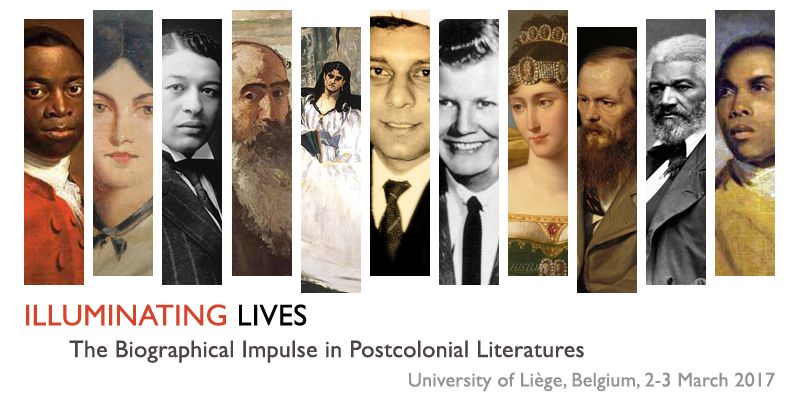This text is also available in
pdf version.
Biographical fiction – which can broadly be defined as creative writing based on the life of a real person, whether famous or not – has become an increasingly prominent genre in recent decades. The field of postcolonial literatures has been no exception to this trend, as evidenced by the publication in the last few years of numerous biographical novels, short stories, poems and plays. Among the many examples of works centring on historical figures and other individuals who have actually lived (featured under real or borrowed names) are Peter Carey's
True History of the Kelly Gang (2000), J.M. Coetzee's
The Master of Petersburg (1994), Jackie Kay's
Trumpet (1998), Caryl Phillips's
Dancing in the Dark (2005),
Foreigners (2007), and
The Lost Child (2015), Vikram Seth's
Two Lives (2005), and Derek Walcott's
Tiepolo’s Hound (2000) and
O Starry Starry Night (2013).
If (auto)biography has already been the subject of extensive criticism, the scholarly focus on the specific generic features of biographical fiction, poetry and drama appears to be a more recent phenomenon. This is especially true in the postcolonial field, where creative writers’ engagement with the biographical genre has often been subordinated to other critical concerns, even in analyses of works such as those mentioned above. As a result, many questions about the nature and scope of biographical creative writing by postcolonial authors still need to be addressed. These issues include, but are not limited to:
► Is there such a thing as postcolonial biographical fiction, poetry or drama? What, if anything, characterizes the biographical stance in postcolonial creative writing?
► Does postcolonial biographical fiction entail specific formal features?
► Is postcolonial biographical fiction a subgenre of what Linda Hutcheon has called “historiographic metafiction”?
► Do postcolonial writers owe anything to earlier conceptualizations of biographical fiction developed by canonical writers such as Virginia Woolf? Or, on the contrary, do postcolonial authors tend to depart from "mainstream" models?
► What are the epistemological and methodological implications of analysing (postcolonial) works that bring together "fact" and fiction?
► Considering that postcolonial creative works have often been valued for their documentary utility, does postcolonial biographical fiction have particular political potential? Or, conversely, could it be argued that the expectations of factual accuracy attached to the biographical genre tend to prevent postcolonial writers from freely fictionalizing historical figures and events?
► How important is the identity of the biographical subject in labelling creative writing as “postcolonial”? Does the hegemonic or marginalized status of the biographical subject (in terms of race, class, gender, nationality) matter at all?
The above issues and other relevant questions will be explored during the symposium.

